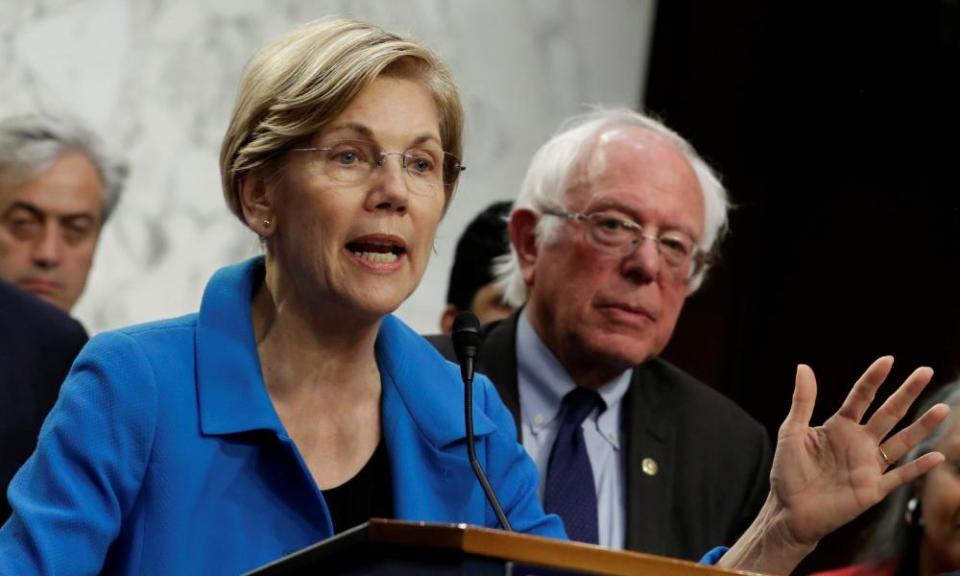Elizabeth Warren seeks to use Trump Pocahontas 'racial slur' as political tool
Senator raises issue of sexual assault against Native Americans

Elizabeth Warren has responded to Donald Trump’s latest “Pocahontas” jibe by highlighting the problem of sexual violence against Native American women, a tactic she said she would pursue each time the president “threw out” such a “racial slur”.
At a rally in Pennsylvania on Saturday night, Trump discussed the Massachusetts senator as a potential rival for the White House in 2020.
“If I don’t win the election, [news] ratings are going to go so far down, they’ll be out of business, every one of them,” he said. “Can you imagine? Can you imagine covering Bernie [Sanders] or Pocahontas? How about that?”
Trump has long referred to Warren as “Pocahontas”, even in front of decorated Navajo veterans in the Oval Office, in reference to controversy over her claim of Native American ancestry.
Appearing on CNN’s State of the Union on Sunday, Warren said her “family story” was “deeply a part of me”. She also said she was “not running for president in 2020”.
Warren repeated her 2020 denial on NBC’s Meet the Press and on Fox News Sunday, although on the former show she would not be drawn into making a pledge to serve her next six-year Senate term in full. On NBC she said her recent donations to all 50 state Democratic parties and the Democratic National Committee were about getting back “some control in the Senate and in the House”, rather than boosting her national profile.
On both networks, Warren did not answer questions about whether she would take a DNA test as Republicans and one Massachusetts newspaper, the Berkshire Eagle, have suggested she should. Family members told her her mother was part-Native American, she told Fox, and it was “a part of who I am and no one’s ever going to take that away”.
Asked on NBC what would be wrong with knowing for sure about her ancestry, Warren said: “I do know. I know who I am, never used it for anything, never got any benefit from it anywhere.”
Much press attention on Warren’s claimed ancestry has focused on her responses to questions about minority status on a range of forms from colleges she attended or taught at as a law professor, including Penn State and Harvard.
On NBC and CNN, Warren outlined her planned response to attacks on the matter from Trump, telling the latter: “I went to speak to Native American leaders and I made a promise to them: that every time President Trump wants to try to throw out some kind of racial slur, he wants to try to attack me, I’m going to try to use it as a chance to lift up their stories.
“I’m going to do that right now by pointing out that more than half of Native women in this country have been the victims of sexual violence, and more than half of them are attacked by non-natives. And the American government is doing nothing about this.”
Figures on sexual assault against Native American women vary but the issue is agreed to be serious. A 2016 US justice department survey said 56% of Native American women reported experiencing sexual violence.
“Native American women are subjected to sexual violence at rates much higher than any other group in our country,” Warren said. “We need to put some focus on this and we need to make some changes on this. We owe it to people living in Native communities.”

